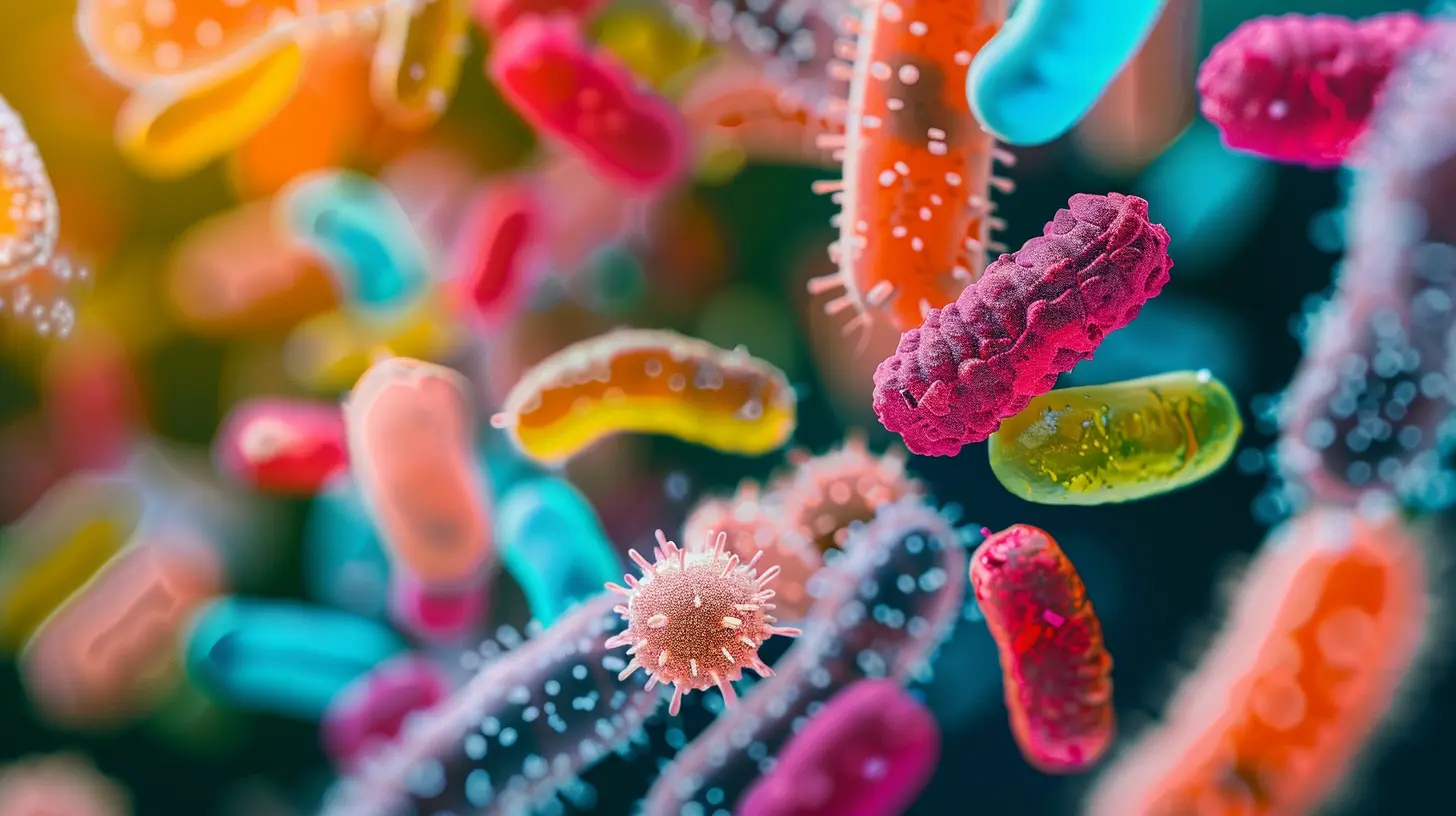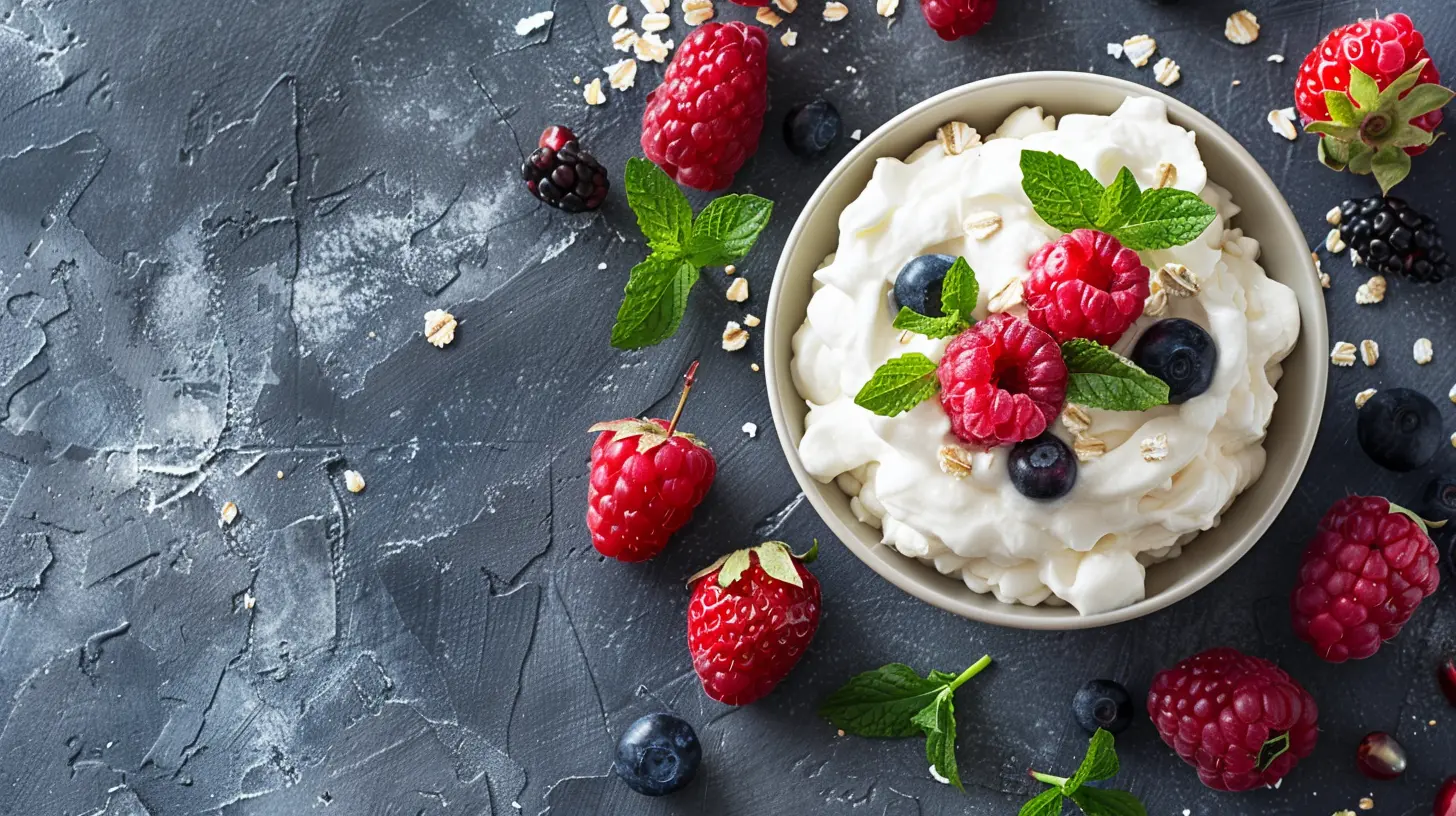1 April 2025
When it comes to raising happy and healthy kids, parents focus on all the basics—balanced meals, exercise, plenty of sleep, and lots of love. But what if I told you there’s something just as important that often gets overlooked? Yep, I’m talking about gut health.
A healthy gut can set the foundation for everything from digestion to brain development, immune function, and even mood regulation. And the secret ingredient to a thriving gut? Probiotics. These tiny, mighty bacteria are more powerful than you think, and adding them to your child’s diet could be a game-changer.
So, let’s dive into why probiotics should be on every parent’s radar and how they can help raise a healthier, happier kid. 
The Connection Between Gut Health and Overall Well-Being
The gut is more than just a place where food gets digested. It's home to trillions of bacteria that play a crucial role in overall health. This collection of microbes, known as the gut microbiome, influences everything from immunity to brain function.Think of the gut as a garden. If you cultivate it with the right mix of friendly bacteria (probiotics) and nutritious foods, it flourishes. But if harmful bacteria take over, the garden struggles, leading to digestive issues, weakened immunity, and even mood imbalances.
For kids, a well-balanced gut can mean fewer tummy troubles, fewer sick days, and a more balanced emotional state. And let’s be honest—when kids feel good, parents do too! 
What Are Probiotics, and Why Do They Matter?
Probiotics are live beneficial bacteria that help maintain a healthy balance in the gut. They work to keep bad bacteria in check, aid digestion, and support the immune system. These good bacteria naturally exist in the body but can also be introduced through food and supplements.For kids, probiotics can be especially helpful in:
- Improving digestion – Say goodbye to bloating, gas, and constipation.
- Boosting the immune system – Fewer colds and infections? Yes, please!
- Reducing allergies and skin conditions – Some studies suggest probiotics may help with eczema and seasonal allergies.
- Supporting mental health – Believe it or not, gut health and the brain are connected. A balanced gut can help with mood regulation and anxiety.
So, if your child deals with frequent tummy issues, immune problems, or mood swings, probiotics might just be the natural solution you’ve been looking for. 
Signs Your Child May Need More Probiotics
How do you know if your kid’s gut needs a little extra love? Here are some signs that may indicate an imbalance in gut bacteria:1. Frequent Digestive Issues – Constipation, diarrhea, bloating, or gas might signal an unhealthy gut.
2. Weakened Immune System – If your child gets sick often, their gut bacteria might need a boost.
3. Skin Problems – Eczema, rashes, or acne may be linked to gut health.
4. Frequent Mood Swings or Anxiety – The gut-brain connection is real, and an unbalanced gut can affect mood.
5. Food Sensitivities – Trouble digesting certain foods may stem from an unhealthy gut.
If any of these sound familiar, it might be time to focus on adding more probiotics to their diet. 
Best Probiotic-Rich Foods for Kids
The good news? You don’t have to rely on supplements to get probiotics into your child’s system. Many delicious, kid-friendly foods are naturally rich in probiotics! Here are some of the best ones:1. Yogurt
Yogurt is one of the most well-known sources of probiotics. Look for varieties with live and active cultures and without too much added sugar. Bonus points if it includes strains like Lactobacillus and Bifidobacterium, which are great for gut health.2. Kefir
This fermented milk drink is like yogurt’s super-powered cousin. It contains more strains of probiotics than traditional yogurt and is a great option for kids who enjoy smoothies.3. Sauerkraut and Kimchi
Fermented vegetables like sauerkraut and kimchi pack a probiotic punch. If your child isn’t a fan of the strong tangy flavor, start small and mix it into their meals.4. Pickles (Fermented Ones!)
Not all pickles are created equal—only naturally fermented pickles, which don’t contain vinegar, have probiotics. Look for those made with just salt and water.5. Miso and Tempeh
If your family enjoys Asian cuisine, miso soup and tempeh (fermented soybean products) are excellent probiotic sources.6. Kombucha
This bubbly, fermented tea can be a fun probiotic drink for kids, but be mindful of added sugars. Choose a mild-flavored kombucha for an easy introduction.By adding these foods into your child’s diet, you’ll help feed their gut with beneficial bacteria naturally.
Choosing the Right Probiotic Supplement
While food is the best way to get probiotics, supplements can also be helpful—especially if your child is a picky eater or has specific digestive issues. Here’s what to consider when choosing a probiotic supplement:1. Multiple Strains
Different probiotic strains have different benefits. Look for supplements with a mix of Lactobacillus and Bifidobacterium strains.2. CFUs (Colony-Forming Units)
This measures the number of live bacteria in the supplement. For kids, a range of 5-10 billion CFUs is usually recommended.3. No Artificial Additives
Check the ingredients list to make sure there are no unnecessary fillers, artificial colors, or sweeteners.4. Age-Appropriate Formulation
Some probiotics are made specifically for infants, toddlers, or older kids. Choose one that fits your child’s age group.If you’re unsure which probiotic supplement is best, check with your child’s pediatrician for recommendations.
Supporting Gut Health Beyond Probiotics
Probiotics are a great start, but gut health isn’t just about adding good bacteria—it’s also about feeding those bacteria the right food.1. Increase Fiber Intake
Prebiotics (a type of fiber that feeds good bacteria) help probiotics thrive. Foods like apples, bananas, oats, and asparagus are excellent sources.2. Limit Processed Foods and Sugar
Junk food can encourage the growth of bad bacteria. Try to minimize ultra-processed snacks and excess sugar in your child’s diet.3. Encourage Outdoor Play
Believe it or not, playing outside and getting dirty can help kids develop a stronger microbiome! Exposure to different microbes in nature can improve gut diversity.4. Ensure Hydration
Water helps digestion and keeps the gut functioning smoothly, so make sure your child drinks enough fluids throughout the day.When you combine probiotics with a balanced diet and healthy habits, you’re setting your child up for a lifetime of good gut health.
Final Thoughts: A Healthy Gut Equals a Happy Kid
When it comes down to it, gut health plays a much bigger role in your child’s well-being than most people realize. From boosting immunity to improving digestion and even regulating mood, probiotics can be a simple yet powerful way to support your little one’s overall health.So whether you start by adding more yogurt to their breakfast or picking up a kid-friendly probiotic supplement, every small step counts. A happy gut leads to a happy kid—and that’s a win for the whole family.




Nixie Luna
Absolutely! Prioritizing probiotics is a fantastic step for both gut health and overall well-being. A happy gut can lead to happier kids! Thank you for sharing this valuable information; it’s essential for parents looking to support their children’s health.
April 1, 2025 at 3:30 PM